- Joined
- Jan 17, 2010
- Messages
- 4,522
- Reaction score
- 5,488
By Leah Cohen
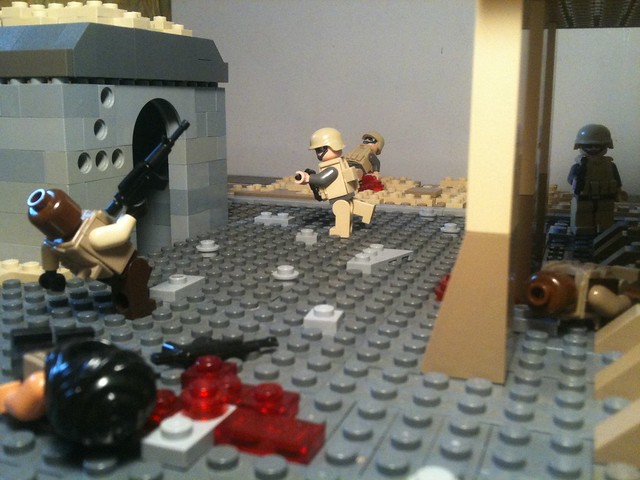
Sudan has a long and complex political history, particularly in the 21st century. Following the Darfur genocide in early 2000, Sudan has remained a politically unstable hotpot of civil war, economic crises, and intercommunal violence. In addition, the severe effects of climate change and a growing refugee population from neighboring Ethiopia place Sudan at the crux of political instability. Since April 15th, 2023, the situation has only worsened.
For eight months now, Sudan has been embroiled in a messy and violent civil war between its two military hegemons. The Sudanese Armed Forces (SAF) and the Rapid Support Forces (RSF) are both competing for ruling power, but in their wake have caused one of the biggest humanitarian crises the world has ever seen. So, how did this civil war come about, and how will it end?
It starts with a military coup in April 2019 which saw Omar al-Bashir ousted as President after almost three decades in power. Bashir resided over Sudan during the horrific events of the Darfur genocide in the early 2000s and was overthrown in a popular uprising, replacing his government with the military-formed Transitional Military Council (TMC). The TMC ruled Sudan for several months until August 2019, when they, along with the Forces for Freedom and Change came together to form a transitional government to lead Sudan for up to 39 months while they prepared the transition from a military to a civilian government.

During this time, the TMC dissolved and was replaced by the Sovereign Council with SAF leader General Abdel Fattah al-Burhan at its head, and RSF leader General Mohamed Hamdan Dagalo (more commonly known as Hemedti) as deputy. For two years, al-Burhan and Hemedti led Sudan together in relative cooperation, initiating a coup together in October 2021 which saw the transitional government dissolved, and another military one taking its place.
After the coup, however, tensions began to rise over disagreements on how to integrate the RSF into the Sudanese military. Hemedti initially sought a 10-year integration period to maintain his own influence over the government, however, many army general staff wanted a two-year integration period. This, alongside growing concerns over security, led to an eruption in violence between the RSF and the SAF in April of 2023.
Prior fighting in Sudan is normally contained in more rural areas, particularly in Darfur. However, the eruption of civil war in April was isolated mainly within the capital Khartoum before rapidly spreading throughout the country in the following eight months of fighting.
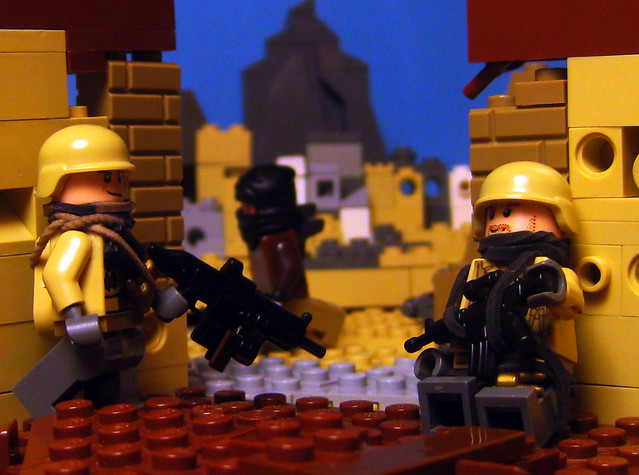
Both the SAF and the RSF believe they have the right to rule Sudan, with both groups essentially framing themselves as reformists and the harbingers of civilian rule in Sudan. However, neither group is cohesive in their beliefs. The RSF – which grew out of the paramilitary Janjaweed, who were responsible for the Darfur genocide – have attempted to rebrand themselves as revolutionaries and great supporters of the democratic process. The SAF, similarly, have rehashed elements of al-Bashir’s Islamist policies within their own army leadership. Both the SAF and the RSF, though, remain the main obstruction to establishing a civilian government in Sudan.
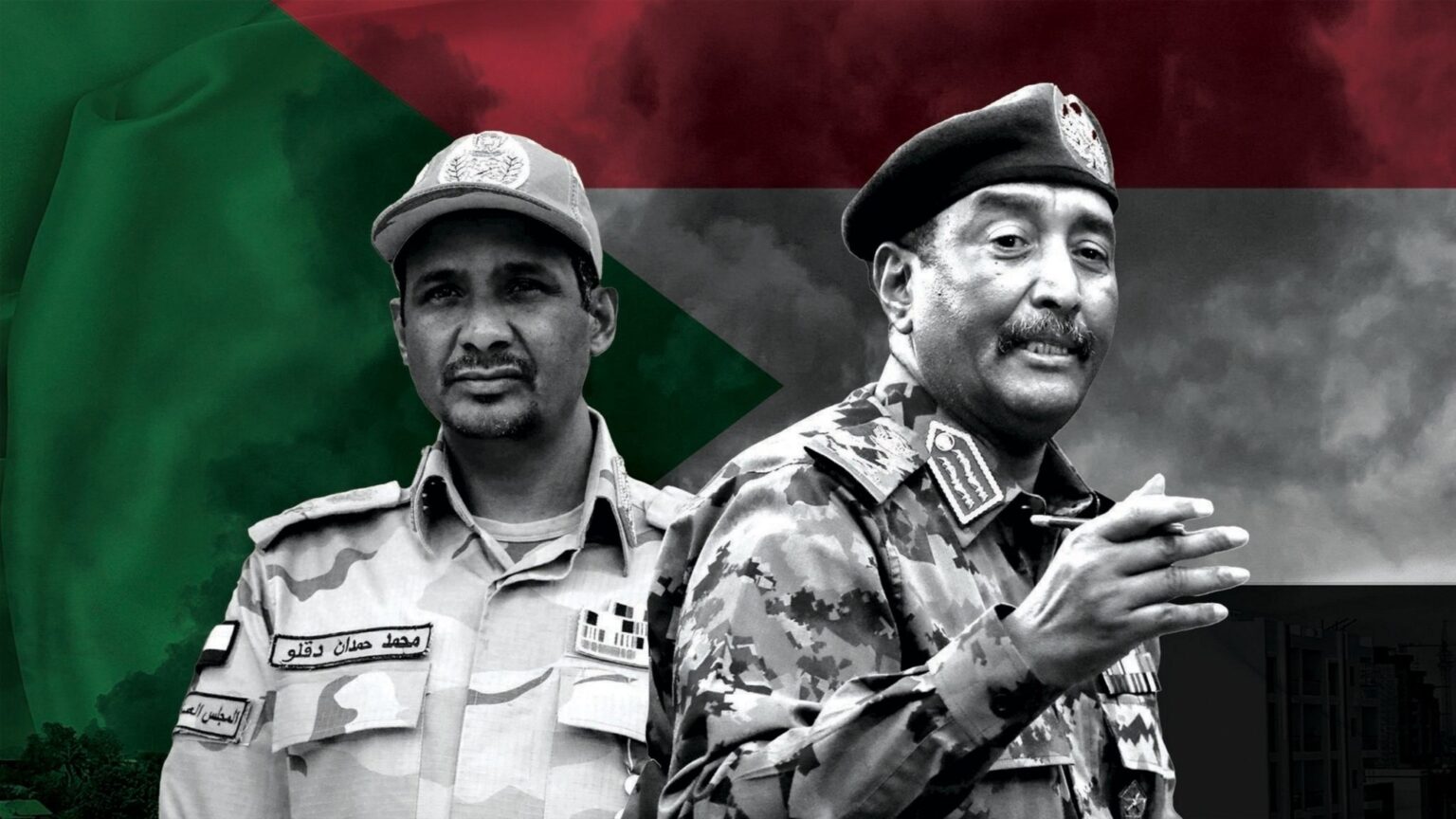
SAF leader and de-facto head of Sudan, General Abdel Fattah al-Burhan (right) and RSF leader General Mohamed Hamdan Dagalo (left). Source: ITSS
It would be easy to characterize this wave of violence as a simple power struggle between old allies, however, that is not the full story. What we are seeing currently in Sudan may have arisen out of disagreements between the two generals but it has devolved into one of the worst humanitarian crises in history to date.
The Humanitarian Damage
Constant bombardment, intercommunal and ethnic violence against civilians, and dwindling water and food supplies echoes of a time, 20 years prior, when the horrors of the Darfur genocide resulted in the death of 500,000 people. As with most civil wars, civilians are caught up in the middle of it, and Sudan is no different. With fighting initially focused in Khartoum – a prior emblem of a united Sudan – civilians and civilian dwellings have consistently been used as shields by both the SAF and the RSF.
While all of the violence in Sudan has been shocking, the return of fighting to Darfur is a particularly distressing sign with new reports of sexual violence, rape, and torture from both the RSF and the SAF. Women and girls as young as 12 around Khartoum and the country have been abducted and subjected to sexual violence, and Amnesty International received reports of women being held in conditions of sexual slavery for several days.
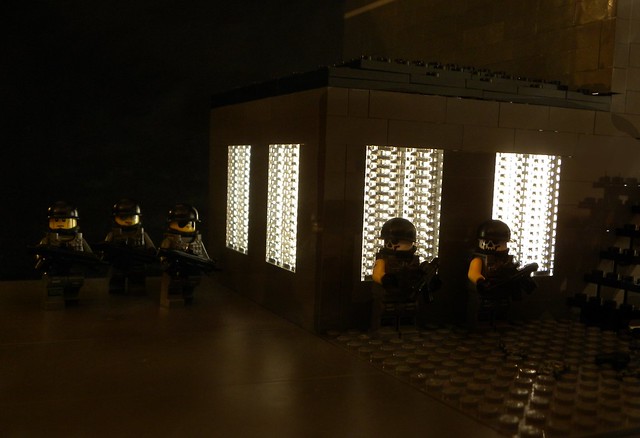
While the SAF has been implicated in cases of rape, sexual assault, and airstrikes in populated areas, the RSF has been accused of re-igniting genocide against non-Arab communities like the Masalit. These genocidal accusations follow a series of significant military victories by the RSF in Darfur. By the end of November 2023, the RSF controlled four out of five Darfur states and had become the de facto ruling authority in the region.
More than 9,000 civilians have been murdered since the start of fighting in April, and 7.1 million people have been forced from their homes, resulting in the world’s largest displacement crisis ever. Reports from the village of Ardamata reveal that the RSF launched an ethnically motivated attack against Masalit civilians, resulting in the murder and displacement of the town’s population. Human Rights Watch warns that this is a sign of ethnically targeted killings against the Masalit.
Civilians have been fleeing towards Chad from West Darfur which has led to a new wave of ethnic violence towards the Masalit community. Any humanitarian support has been difficult to obtain, with attacks against humanitarian workers in the country. Further humanitarian support coming from Port Sudan has also been inadequate in meeting the needs of the Sudanese civilians, following the closing of all other transportation routes. As the Port is controlled by only one party and following a poor agricultural season in the country, there has been no guarantee of vital supplies making their way inland, creating a dire humanitarian situation.
Civilians who have not yet found themselves displaced by the violence are caught between Eastern Sudan, Khartoum, and Darfur, without food, basic security, or basic services. With RSF strongholds in Darfur and SAF bases in Eastern Sudan, many civilians are being pressured to choose sides in the fight. For many, this is leading to fears that Sudan faces a similar fate to Libya. That of two rival power centers in the country’s east and west.
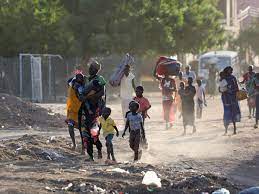
Peace Talks
While the international response to Sudan has been lacking, there have been some attempts to barter peace between the SAF and the RSF. The African Union and the Intergovernmental Authority on Development have both put forward peace initiatives to little avail.
Egypt has attempted to bring forward demands after thousands of Sudanese civilians fled there. The Cairo Summit placed forward two demands – for African powers to work towards a ceasefire between the warring military factions, and the focus on creating humanitarian corridors in Sudan.
In Jeddah, Saudi Arabia and the United States have put forward their initiatives to work towards peace in Sudan, however, they so far have not been sufficient to create a long-lasting break in hostilities. A second round of peace talks in Jeddah was initiated between 26th October and 7th November, however, both the SAF and the RSF have continued to advance relentlessly. Further, despite both military powers agreeing to establish a humanitarian forum, militias have continued to expel citizens forcibly, and ethnically cleanse areas of Sudan, and are consistently committing international crimes with no sign of de-escalation.
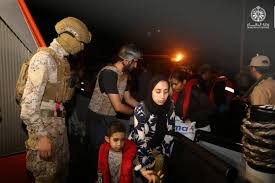
Against the many international crises currently, whether in Ukraine or Gaza, it would be easy for Sudan to fall off the radar, and be almost forgotten. In the face of the flagrant disregard for international humanitarian law that both the SAF and the RSF have shown, it is clear that the international response to the horror in Sudan has failed to understand and address the urgency of the situation. Sudan has quickly become one of the worst humanitarian crises in history, and it is crucial to supply immediate assistance to displaced Sudanese people, however, the international response has failed to rise to the occasion.
https://thenewglobalorder.com/world-news/sudan-eight-months-of-civil-war/

Sudan has a long and complex political history, particularly in the 21st century. Following the Darfur genocide in early 2000, Sudan has remained a politically unstable hotpot of civil war, economic crises, and intercommunal violence. In addition, the severe effects of climate change and a growing refugee population from neighboring Ethiopia place Sudan at the crux of political instability. Since April 15th, 2023, the situation has only worsened.
For eight months now, Sudan has been embroiled in a messy and violent civil war between its two military hegemons. The Sudanese Armed Forces (SAF) and the Rapid Support Forces (RSF) are both competing for ruling power, but in their wake have caused one of the biggest humanitarian crises the world has ever seen. So, how did this civil war come about, and how will it end?
It starts with a military coup in April 2019 which saw Omar al-Bashir ousted as President after almost three decades in power. Bashir resided over Sudan during the horrific events of the Darfur genocide in the early 2000s and was overthrown in a popular uprising, replacing his government with the military-formed Transitional Military Council (TMC). The TMC ruled Sudan for several months until August 2019, when they, along with the Forces for Freedom and Change came together to form a transitional government to lead Sudan for up to 39 months while they prepared the transition from a military to a civilian government.

During this time, the TMC dissolved and was replaced by the Sovereign Council with SAF leader General Abdel Fattah al-Burhan at its head, and RSF leader General Mohamed Hamdan Dagalo (more commonly known as Hemedti) as deputy. For two years, al-Burhan and Hemedti led Sudan together in relative cooperation, initiating a coup together in October 2021 which saw the transitional government dissolved, and another military one taking its place.
After the coup, however, tensions began to rise over disagreements on how to integrate the RSF into the Sudanese military. Hemedti initially sought a 10-year integration period to maintain his own influence over the government, however, many army general staff wanted a two-year integration period. This, alongside growing concerns over security, led to an eruption in violence between the RSF and the SAF in April of 2023.
Prior fighting in Sudan is normally contained in more rural areas, particularly in Darfur. However, the eruption of civil war in April was isolated mainly within the capital Khartoum before rapidly spreading throughout the country in the following eight months of fighting.

Both the SAF and the RSF believe they have the right to rule Sudan, with both groups essentially framing themselves as reformists and the harbingers of civilian rule in Sudan. However, neither group is cohesive in their beliefs. The RSF – which grew out of the paramilitary Janjaweed, who were responsible for the Darfur genocide – have attempted to rebrand themselves as revolutionaries and great supporters of the democratic process. The SAF, similarly, have rehashed elements of al-Bashir’s Islamist policies within their own army leadership. Both the SAF and the RSF, though, remain the main obstruction to establishing a civilian government in Sudan.

SAF leader and de-facto head of Sudan, General Abdel Fattah al-Burhan (right) and RSF leader General Mohamed Hamdan Dagalo (left). Source: ITSS
It would be easy to characterize this wave of violence as a simple power struggle between old allies, however, that is not the full story. What we are seeing currently in Sudan may have arisen out of disagreements between the two generals but it has devolved into one of the worst humanitarian crises in history to date.
The Humanitarian Damage
Constant bombardment, intercommunal and ethnic violence against civilians, and dwindling water and food supplies echoes of a time, 20 years prior, when the horrors of the Darfur genocide resulted in the death of 500,000 people. As with most civil wars, civilians are caught up in the middle of it, and Sudan is no different. With fighting initially focused in Khartoum – a prior emblem of a united Sudan – civilians and civilian dwellings have consistently been used as shields by both the SAF and the RSF.
While all of the violence in Sudan has been shocking, the return of fighting to Darfur is a particularly distressing sign with new reports of sexual violence, rape, and torture from both the RSF and the SAF. Women and girls as young as 12 around Khartoum and the country have been abducted and subjected to sexual violence, and Amnesty International received reports of women being held in conditions of sexual slavery for several days.

While the SAF has been implicated in cases of rape, sexual assault, and airstrikes in populated areas, the RSF has been accused of re-igniting genocide against non-Arab communities like the Masalit. These genocidal accusations follow a series of significant military victories by the RSF in Darfur. By the end of November 2023, the RSF controlled four out of five Darfur states and had become the de facto ruling authority in the region.
More than 9,000 civilians have been murdered since the start of fighting in April, and 7.1 million people have been forced from their homes, resulting in the world’s largest displacement crisis ever. Reports from the village of Ardamata reveal that the RSF launched an ethnically motivated attack against Masalit civilians, resulting in the murder and displacement of the town’s population. Human Rights Watch warns that this is a sign of ethnically targeted killings against the Masalit.
Civilians have been fleeing towards Chad from West Darfur which has led to a new wave of ethnic violence towards the Masalit community. Any humanitarian support has been difficult to obtain, with attacks against humanitarian workers in the country. Further humanitarian support coming from Port Sudan has also been inadequate in meeting the needs of the Sudanese civilians, following the closing of all other transportation routes. As the Port is controlled by only one party and following a poor agricultural season in the country, there has been no guarantee of vital supplies making their way inland, creating a dire humanitarian situation.
Civilians who have not yet found themselves displaced by the violence are caught between Eastern Sudan, Khartoum, and Darfur, without food, basic security, or basic services. With RSF strongholds in Darfur and SAF bases in Eastern Sudan, many civilians are being pressured to choose sides in the fight. For many, this is leading to fears that Sudan faces a similar fate to Libya. That of two rival power centers in the country’s east and west.
Peace Talks
While the international response to Sudan has been lacking, there have been some attempts to barter peace between the SAF and the RSF. The African Union and the Intergovernmental Authority on Development have both put forward peace initiatives to little avail.
Egypt has attempted to bring forward demands after thousands of Sudanese civilians fled there. The Cairo Summit placed forward two demands – for African powers to work towards a ceasefire between the warring military factions, and the focus on creating humanitarian corridors in Sudan.
In Jeddah, Saudi Arabia and the United States have put forward their initiatives to work towards peace in Sudan, however, they so far have not been sufficient to create a long-lasting break in hostilities. A second round of peace talks in Jeddah was initiated between 26th October and 7th November, however, both the SAF and the RSF have continued to advance relentlessly. Further, despite both military powers agreeing to establish a humanitarian forum, militias have continued to expel citizens forcibly, and ethnically cleanse areas of Sudan, and are consistently committing international crimes with no sign of de-escalation.
Against the many international crises currently, whether in Ukraine or Gaza, it would be easy for Sudan to fall off the radar, and be almost forgotten. In the face of the flagrant disregard for international humanitarian law that both the SAF and the RSF have shown, it is clear that the international response to the horror in Sudan has failed to understand and address the urgency of the situation. Sudan has quickly become one of the worst humanitarian crises in history, and it is crucial to supply immediate assistance to displaced Sudanese people, however, the international response has failed to rise to the occasion.
https://thenewglobalorder.com/world-news/sudan-eight-months-of-civil-war/

